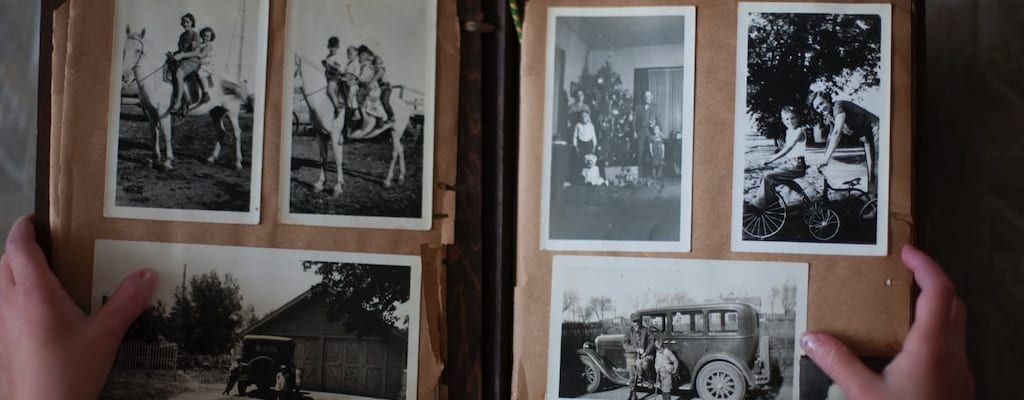dead men’s shoes: Idiom Meaning and Origin
What does ‘dead men's shoes’ mean?
The idiom "dead men's shoes" means waiting for a position to become available because it can only be filled once the current occupant dies or leaves.

Idiom Explorer
The idiom "down at heel" refers to a person who is in a poor or shabby condition, usually due to lack of money or neglect. It suggests a decline in social or financial status.
The idiom "don't hold your breath" means to not expect something to happen or to not have high hopes for a particular outcome.
The idiom "dead to rights" means catching someone red-handed or in undeniable guilt, leaving no room for doubt or escape.
The idiom "dead soldier" is used to refer to an empty or finished bottle of alcohol, symbolizing the end of its use. It is often used informally and colloquially to describe the state of a bottle after all its contents have been consumed.
The idiom "dead 'n' buried" means something is finished, completed, or resolved, often implying a definitive end or closure.
The idiom "dead meat" is used to describe someone who is in serious trouble or facing severe consequences. It implies that the person is helpless and likely to suffer negative consequences or punishment.
The idiom "dead loss" refers to something or someone that is completely useless or unproductive, providing no value or benefit.
The idiom "dead last" means finishing in the final position. It emphasizes being in the very bottom and suggests being significantly behind the competition.
Deciphering Footwear Inheritance
Dead men's shoes is an English idiom that describes the desire to benefit or advance oneself by taking the place of someone who has died or left a particular position or role. It is often used when discussing inheriting or obtaining a job, promotion, or opportunity that becomes available due to someone else's departure or passing. This expression originated in 16th century England and is still in use today.
The meaning behind the idiom is simple. "Dead men's shoes" suggests that in order for someone to move forward or fill a vacant position, someone else must first step down or pass away. This creates a competitive atmosphere where individuals vie for the chance to step into the shoes left behind.
While the origins of the idiom are unclear, it is believed to have developed from the superstition or belief that the shoes of a deceased person hold some form of luck or power. In the past, it was not uncommon for people to try on the shoes of someone who had passed away in hopes of inheriting their good fortune or abilities. This act became metaphorical, representing the desire to take on the roles and opportunities left behind by those who have passed.
It is important to note that "dead men's shoes" is primarily used in British English, and may be less common or well-known in other English-speaking countries. However, the concept of benefiting from the departure or demise of another person is universal and can be found in various cultures and languages.
In a similar vein, the idiom "wait for the other shoe to drop" relates to the idea of anticipation and expectation. When used in a situation, it means waiting for a second event or consequence to occur, usually negative, after an initial event has happened. This idiom is often used when there is a sense of impending doom or an unresolved situation, leaving people on edge as they wait for the outcome.
Another related idiom is "cool one's heels", which means to wait patiently or wait for a long time. It implies a sense of boredom or frustration while waiting for something to happen and encourages patience and calmness in the face of delays or uncertainty. The idiom suggests that one should try to relax and remain composed, even if the wait feels endless.
Similarly, the idiom "dead and buried" refers to something that is finished or completed. It implies that a situation, idea, or argument has been settled and is no longer relevant or in need of further discussion. It can also be used to describe something that is definitively over or has come to an end. The idiom carries a finality, suggesting that there is no possibility of resurrection or continuation.
The final related idiom is "cock one's toes", which means to die. This idiom is less commonly used and may sound unfamiliar to many. However, it shares the theme of death and departure with "dead men's shoes". "Cock one's toes" is a more informal and colloquial way of expressing the concept of death, often used in casual conversation or storytelling.
"dead men's shoes" is an idiom used to describe the desire or attempt to take advantage of vacancies or opportunities created by someone's departure or passing. It originated from superstitions surrounding the shoes of the deceased, but its metaphorical meaning has become ingrained in the English language. While the phrase may be less known outside of the British context, its underlying concept remains relevant and relatable. Stepping into the shoes of those who came before us signifies the transient nature of life and the opportunities that arise from change and transition.
Example usage
Examples of how the idiom *dead men's shoes* can be used in a sentence:
- I'm afraid the only way for you to get that promotion is if someone in a higher position leaves or retires; it's a case of dead men's shoes.
- She's been waiting patiently for years, hoping to take over her father's business, but it seems like she'll only be able to do so when he passes away - it's a matter of dead men's shoes.
- He knows that the only way he'll have a chance to play in the starting lineup is if one of the key players gets injured - he's waiting for an opportunity to fill dead men's shoes.
More "inheritance" idioms



